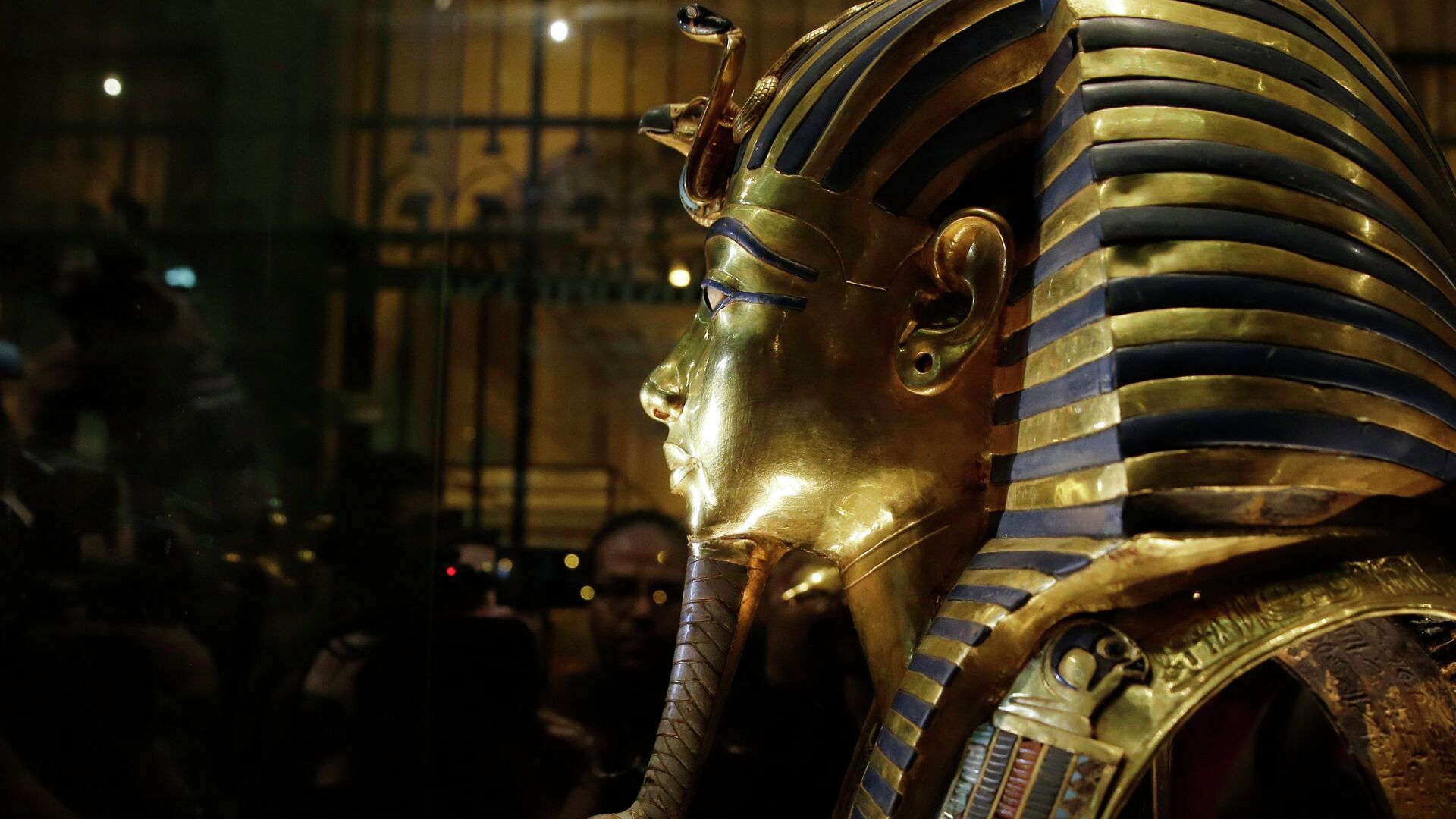https://sputnikglobe.com/20220326/ancient-egyptians-may-have-worshiped-king-tut-due-to-his-divine-disabilities-historian-suggests-1094215954.html
Ancient Egyptians May Have Worshiped King Tut Due to His 'Divine' Disabilities, Historian Suggests
Ancient Egyptians May Have Worshiped King Tut Due to His 'Divine' Disabilities, Historian Suggests
Sputnik International
The ancient king, who assumed the throne at the age of nine and died a decade later became one of the most well-known pharaohs after his tomb was discovered by UK archaeologist Howard Carter in 1922.
2022-03-26T12:23+0000
2022-03-26T12:23+0000
2022-03-26T12:23+0000
ancient egypt
king tutankhamun
tutankhamun
disability
https://cdn1.img.sputnikglobe.com/img/101731/73/1017317351_0:270:5184:3186_1920x0_80_0_0_4f132e5b1891f3fffc766a33df8b020a.jpg
"The Boy King" Tutankhamun may have suffered from disabilities - but also worshiped because of them, according to a new documentary called "Tutankhamun: Waking The Dead" with historian Bettany Hughes.The historian noted that the young monarch could have inherited serious health issues due to inbreeding in the royal family. However, even his disabilities were considered a blessing from the gods, the programme suggested.She noted that some ancient texts, specifically written for children, teach them not to make fun of dwarfs, blind people, and other individuals with disabilities.Tutankhamun, also known as King Tut, was the last representative of the 18th Dynasty, which ruled Egypt from around 1550 BC to 1292 BC. He is believed to be a son or close relative of Amenhotep IV, also known as Echnaton.Let's stay in touch no matter what! Follow our Telegram channel to get all the latest news: https://t.me/sputniknewsus
Sputnik International
feedback@sputniknews.com
+74956456601
MIA „Rossiya Segodnya“
2022
Evgeny Mikhaylov
https://cdn1.img.sputnikglobe.com/img/07e4/09/07/1080390164_0:0:1440:1440_100x100_80_0_0_46c187f2ab0908f86849a7d09a7def57.jpg
Evgeny Mikhaylov
https://cdn1.img.sputnikglobe.com/img/07e4/09/07/1080390164_0:0:1440:1440_100x100_80_0_0_46c187f2ab0908f86849a7d09a7def57.jpg
News
en_EN
Sputnik International
feedback@sputniknews.com
+74956456601
MIA „Rossiya Segodnya“
Sputnik International
feedback@sputniknews.com
+74956456601
MIA „Rossiya Segodnya“
Evgeny Mikhaylov
https://cdn1.img.sputnikglobe.com/img/07e4/09/07/1080390164_0:0:1440:1440_100x100_80_0_0_46c187f2ab0908f86849a7d09a7def57.jpg
ancient egyptians may have worshiped king tut due to his 'divine' disabilities, tutankhamun , pharaoh
ancient egyptians may have worshiped king tut due to his 'divine' disabilities, tutankhamun , pharaoh
Ancient Egyptians May Have Worshiped King Tut Due to His 'Divine' Disabilities, Historian Suggests
The ancient king, who assumed the throne at the age of nine and died a decade later became one of the most well-known pharaohs after his tomb was discovered by UK archaeologist Howard Carter in 1922.
"The Boy King"
Tutankhamun may have suffered from disabilities - but also worshiped because of them, according to a new documentary called "Tutankhamun: Waking The Dead" with historian Bettany Hughes.
The historian noted that the young monarch could have inherited serious health issues due to inbreeding in the royal family. However, even his disabilities were considered a blessing from the gods, the programme suggested.
"The Ancient Egyptians were very enlightened, for them disability was a divine attribute. So, Tutankhamun would not have been stigmatised if he did have a club foot, he would have actually been seen as special", Egyptologist Dr Sofia Aziz, said in the documentary.
She noted that some ancient texts, specifically written for children, teach them not to make fun of dwarfs, blind people, and other individuals with disabilities.
Tutankhamun, also known as
King Tut, was the last representative of the 18th Dynasty, which ruled Egypt from around 1550 BC to 1292 BC. He is believed to be a son or close relative of Amenhotep IV, also known as Echnaton.
Let's stay in touch no matter what! Follow our Telegram channel to get all the latest news: https://t.me/sputniknewsus 

